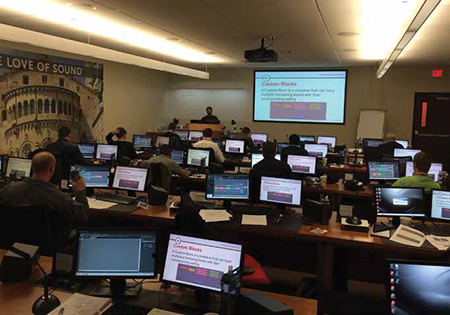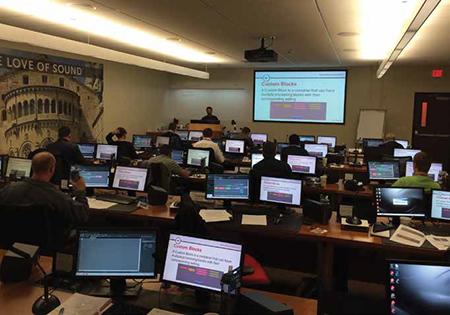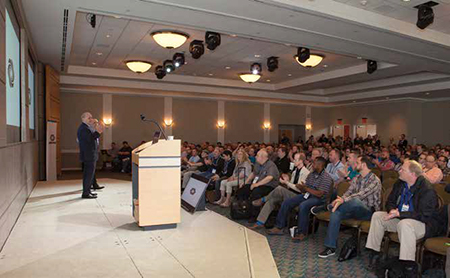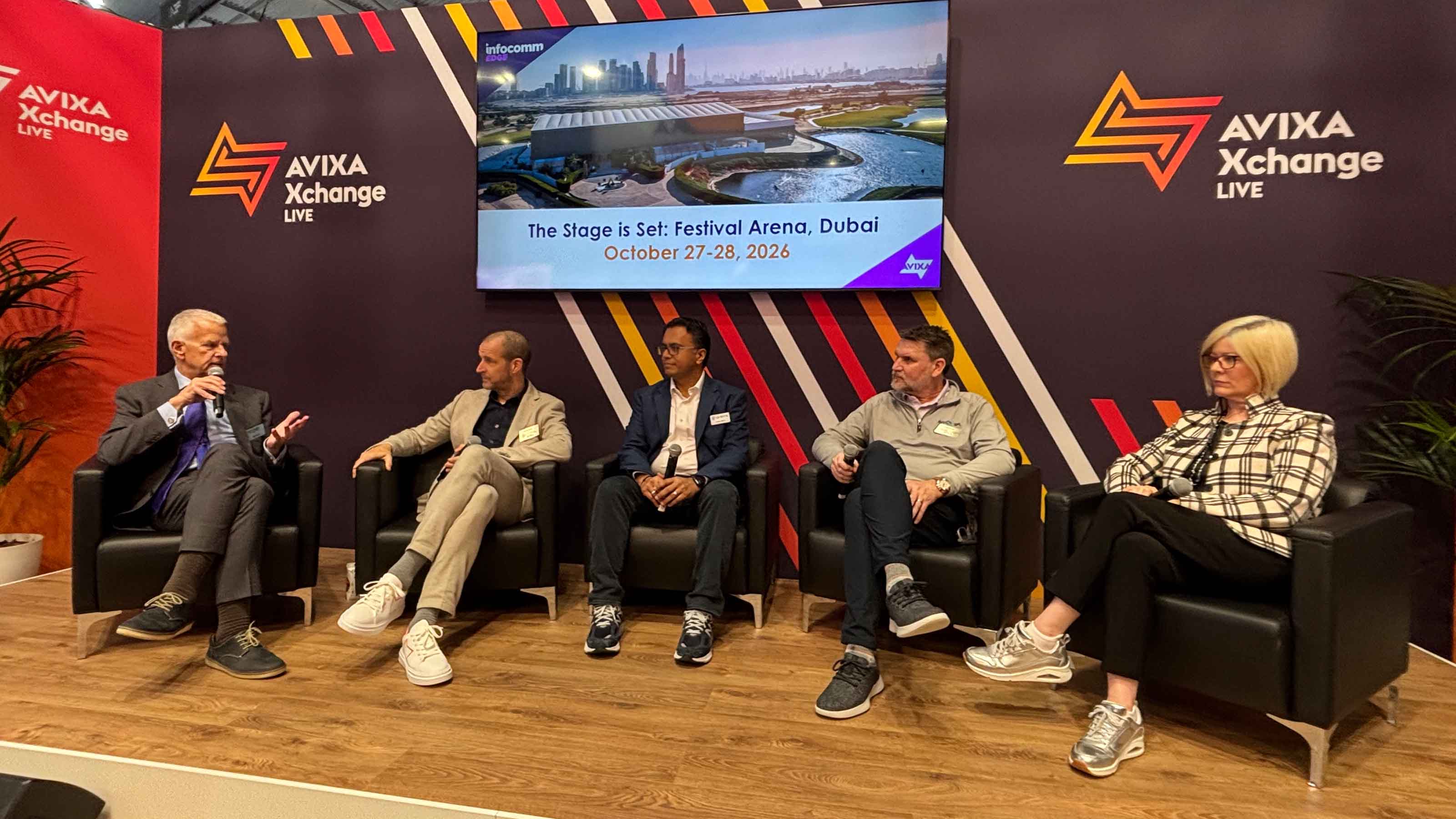Designing Top Training Courses for Modern AV

A daily selection of features, industry news, and analysis for AV/IT professionals. Sign up below.
You are now subscribed
Your newsletter sign-up was successful
As consultants strive to keep ahead of trends in AV technology, industry manufacturers are stepping up their training to assist in this effort. Today, consultants can choose from a growing array of educational opportunities and formats suited to their busy schedules and to their need for forward-looking knowledge.
SVSi, for instance, offers consultants traditional lunch and learns, online training and regional training options, in addition to intensive two-day training sessions at SVSi’s Huntsville, AL headquarters. These alternatives give consultants the ability to learn at the depth and pace of their choosing. They can also selectively attend certain aspects of training sessions that predominantly serve an integrator audience.

Biamp is providing additional practical support through things like YouTube videos and design guides, and also through ongoing support of consultants after training when they go to implement their new knowledge into a design. “Our regional training is module-based, so it’s held over two days, but it’s really four different half-day sessions,” said Mark Templeton, director of sales engineering for SVSi. “A consultant might skip the information and programming sessions and really focus on the AV systems design and network installation sessions.”
Templeton recommends the two-day intensive training at SVSi headquarters for consultants who want a deeper dive on the company’s technologies, offering training that is hands-on with the products. “It really depends on the mindset of the individual,” Templeton said. “Some consultants we work with say, ‘If I don’t understand this at the same level or a deeper level than the integrators or endusers we rely on, then I’m not providing value.’ Others just want to know the concepts but don’t have to experience it.”
Top Training Topics for Consultants
Michael Frank, sales development director of Eastern North America for Biamp Systems, agrees that many consultants are generally less interested in the minutiae of how to make the products work. The notable exception is consultants that are now bringing programming services under their portfolio. Ryan Baumann, regional sales manager for enterprise accounts at Crestron, likewise sees little interest from consultants in Crestron’s programming certification courses, with the exception of those consultants.
“What most consultants want to know is the application of the product and what the product is intended to do,” Frank said. “What are the benefits of the product? What might be a ‘gotcha?’ What should I be aware of if it’s there?”
A daily selection of the top stories for AV integrators, resellers and consultants. Sign up below.
Frank also finds that consultants aren’t as concerned with the ‘sell’ of the product. “What they are really interested in is convincing somebody that what you have is different from what’s out there. And in many cases, they would rather have that be more technical, so they can choose to dumb that down if they want to,” Frank said.

At Crestron, consultants are showing more interest in training on commercial design and on the Fusion product line. At Crestron, Baumann is seeing consultant interest in Crestron’s training on commercial design and on the Fusion product line. “But by a longshot, our most popular would be our DigitalMedia class,” Baumann said. “Most of the major consultants out there have actually at least done the online version and some have done the classroom version.”
As the convergence of AV and IT has become reality, consultants are also increasingly looking to manufacturers to help them acquire that knowledge. “We’re seeing a big thirst for a deeper understanding of network fundamentals, advanced network considerations and IT security,” Templeton said. And, as more consultants with IT backgrounds move into AV, Baumann is seeing those consultants show interest in training on areas they’re less familiar with, such as video distribution systems.
Frank is additionally seeing consultants getting creative and seeking knowledge on how they can tie technologies together to expand on a product’s application. He’s also seen a strong consultant response to a “How to Speak Intelligently to IT People” course, which Biamp recently introduced.
Online Learning for Busy Schedules
Given the demands on consultants’ time, online training has proven to be an exceptionally popular option for consultants. In response, manufacturers are rapidly increasing their suite of online course offerings. Baumann estimates that Crestron has eight to 10 online courses available now, with several more on the way.
Templeton believes in the value of training delivered by a live moderator because it allows for Q&A and a more hands-on approach. But online training has enabled SVSi to reach a far wider audience. “We probably reach 20 times more people through our web-based training than we do through the rest of our training combined,” Templeton said.
Since many of the online courses offer continued access to those who have previously taken a course, this option also gives consultants the opportunity to get a quick refresher. “They can go back to any one chapter and look at specifically that,” Frank said. “So it becomes a library of tools that is useful.”
The online modality also enables consultants to go back and view updated versions of their completed courses as new technologies emerge. Baumann noted, for instance, that many of Crestron’s online courses have been updated over the past six to 12 months, and that a supplemental online guide to 4K for previous students of the DigitalMedia course has been hugely popular.
In some cases, manufacturers are also providing consultant training on future products in acknowledgment of their need to build future technologies into their designs. “We usually host factory training for consultants once a year in which we bounce future Biamp products off of them,” Frank said. “We get their take on some of it and get their buy-in on whether the products are something they can spec.”
A Focus on Practical Support
Companies like Crestron, SVSi, and Biamp strive to provide consultants additional value in the training by making their formal offerings eligible for InfoComm CTS program renewal units whenever possible. They’re also seeking to provide additional practical support through just-in-time resources that consultants can turn to as needed.
At Biamp, Frank sees this happening through things like YouTube videos and design guides, and also through ongoing support of consultants after training when they go to implement their new knowledge into a design.
“A lot of our follow-up is looking at their specific project and how we’re plugged into that project,” Frank said. “Is it right? Is it applied correctly? Will it work? Are there shortcomings or glaring errors? They rely on us to double-check them with respect to that type of application.”
The training departments of many manufacturers also welcome consultant feedback on the blind spots in their existing training so that they can improve their offerings to better meet consultant needs. “We look at training as a pretty integral part of our business,” Baumann said. “If people don’t understand our products, they probably won’t use them.”
Chris Gelbach writes on diverse topics that include careers, marketing, the AV industry, and recreation management.
